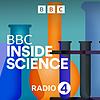
1007 - Does new science get us closer to finding out how life on earth began?
00:00
00:00
Episodios
1007-
Does new science get us closer to finding out how life on earth began?
Escuchado
1006-
How to bury radioactive waste
Escuchado
1005-
Will there be a city on the moon in ten years?
Escuchado
1004-
Where do forever chemicals come from?
Escuchado
1003-